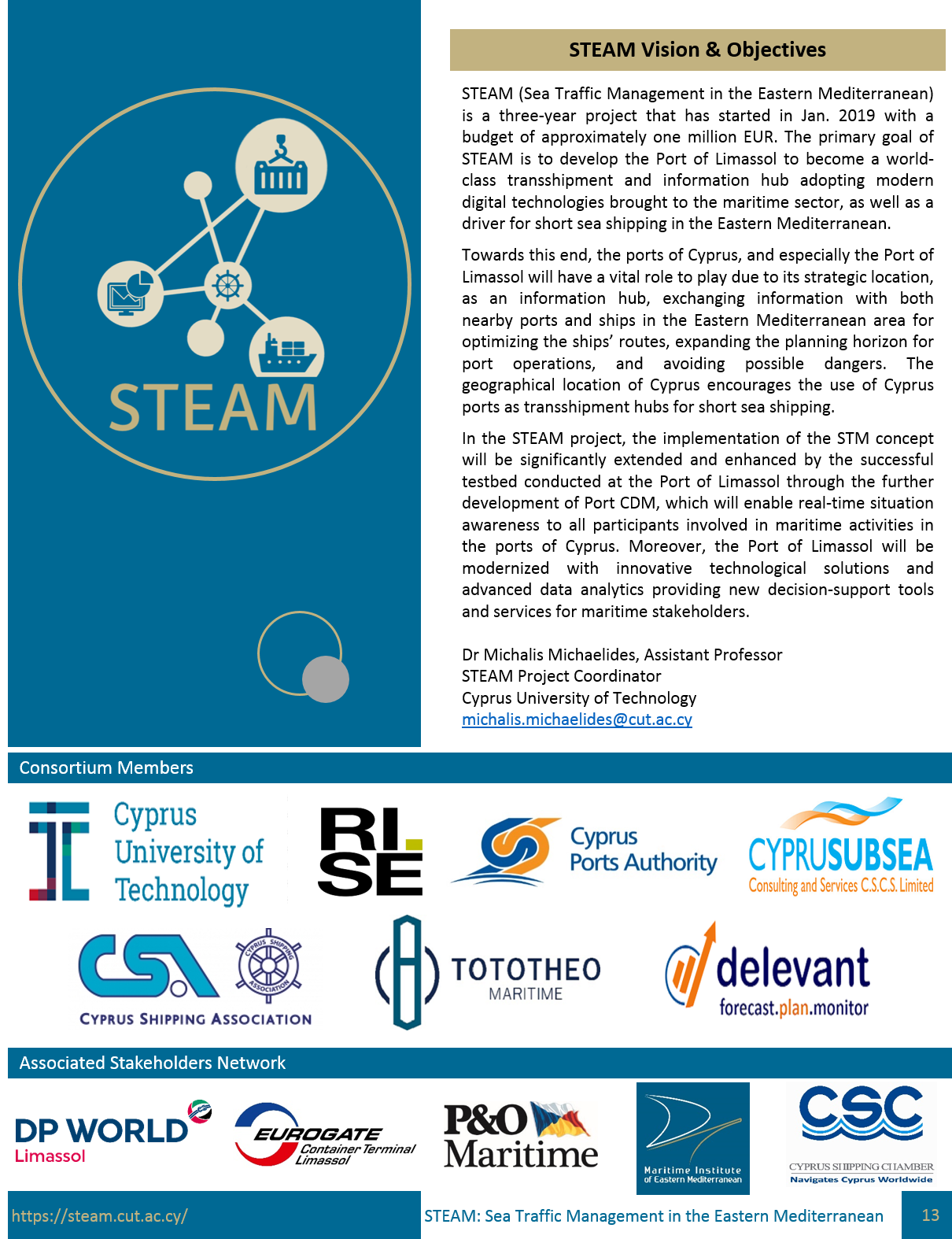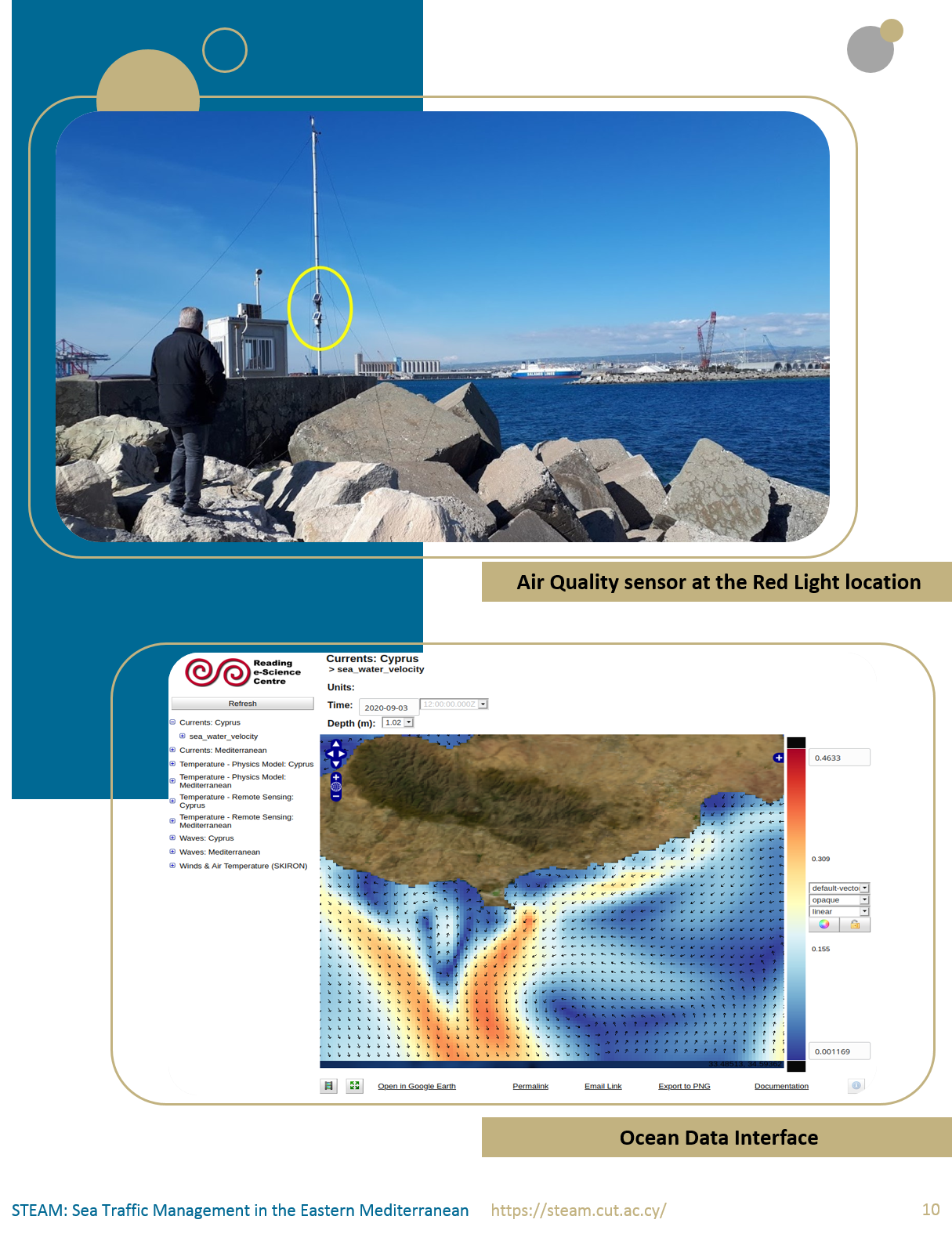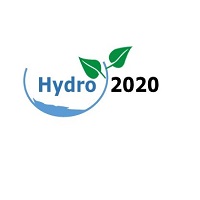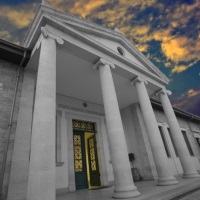We are happy to announce the publication of the second yearly STEAM newsletter: https://steam.cut.ac.cy/steam-newsletter-feb-2021/.
2020 has been a very productive second year for the STEAM project with some important developments and publications, many of which you will have the chance to read about in this newsletter. The STEAM database is fully operational, storing port call, AIS, and environmental monitoring data, while a plethora of systems have reached maturity. Perseus is a new Port Call Data Sharing Platform developed by Marine Fields and is now receiving live port call data from CPA’s Port Community System. There were also considerable efforts in establishing the Limassol Shore Center to be operated by the VTS at the Port of Limassol, providing ways to optimize sea traffic navigation. The Air Quality Monitoring system was developed by CUT for monitoring air pollution in Cyprus, while the Ocean Data Interface developed by CSCS processes and visualizes meteorological and oceanographic data on a daily basis. Last but not least, a Power BI report composed of two fully interactive dashboards was developed by DeLevant for analyzing KPIs in various ways.
STEAM (Sea Traffic Management in the Eastern Mediterranean) is a three-year project that has started in Jan. 2019 with a budget of approximately one million EUR. The project is coordinated by the Cyprus University of Technology (CUT) with the Research Institutes of Sweden (RISE) participating in the project as a Foreign Research Organization. Furthermore, the STEAM consortium consists of the Cyprus Ports Authority, the Cyprus Shipping Association and the private companies Tototheo Maritime, A.T. DeLevant Business Solutions, and Cyprus Subsea Consulting and Services (CSCS). Also, very important is the participation in the project as associated partners of established stakeholders of the Cyprus maritime sector including the Cyprus Shipping Chamber, the Maritime Institute of Eastern Mediterranean (Mar.In.E.M.), and the private companies that currently handle the operations at the Port of Limassol: DP WORLD Limassol, EUROGATE Limassol Container Terminal, and P&O Maritime.
The primary goal of STEAM is to develop the Port of Limassol to become a world-class transshipment and information hub adopting modern digital technologies brought to the maritime sector, as well as a driver for short sea shipping in the Eastern Mediterranean. For more information see https://steam.cut.ac.cy/.
This work is co-funded by the European Regional Development Fund and the Republic of Cyprus through the Research Promotion Foundation (STEAM Project: INTEGRATED/0916/0063).
Contact: michalis.michaelides@cut.ac.cy
Michalis Michaelides, Assistant Professor, Department of Electrical Engineering, Computer Engineering and Informatics
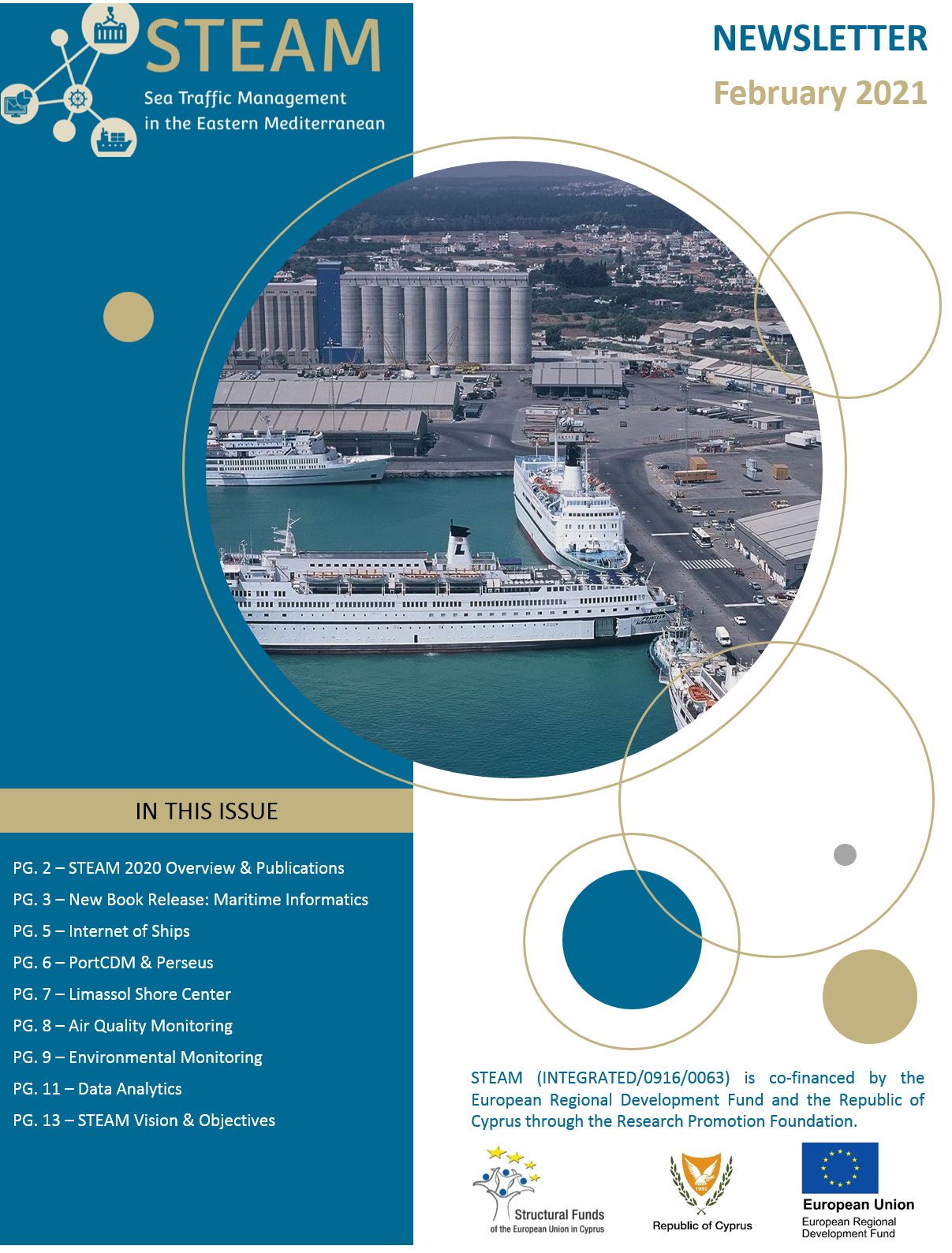
Το ΤΕΠΑΚ συμμετέχει στην προσπάθεια για να καταστεί η Λεμεσός μια Υγιής Πόλη
We are happy to announce the publication of the second yearly STEAM newsletter: https://steam.cut.ac.cy/steam-newsletter-feb-2021/.
2020 has been a very productive second year for the STEAM project with some important developments and publications, many of which you will have the chance to read about in this newsletter. The STEAM database is fully operational, storing port call, AIS, and environmental monitoring data, while a plethora of systems have reached maturity. Perseus is a new Port Call Data Sharing Platform developed by Marine Fields and is now receiving live port call data from CPA’s Port Community System. There were also considerable efforts in establishing the Limassol Shore Center to be operated by the VTS at the Port of Limassol, providing ways to optimize sea traffic navigation. The Air Quality Monitoring system was developed by CUT for monitoring air pollution in Cyprus, while the Ocean Data Interface developed by CSCS processes and visualizes meteorological and oceanographic data on a daily basis. Last but not least, a Power BI report composed of two fully interactive dashboards was developed by DeLevant for analyzing KPIs in various ways.
STEAM (Sea Traffic Management in the Eastern Mediterranean) is a three-year project that has started in Jan. 2019 with a budget of approximately one million EUR. The project is coordinated by the Cyprus University of Technology (CUT) with the Research Institutes of Sweden (RISE) participating in the project as a Foreign Research Organization. Furthermore, the STEAM consortium consists of the Cyprus Ports Authority, the Cyprus Shipping Association and the private companies Tototheo Maritime, A.T. DeLevant Business Solutions, and Cyprus Subsea Consulting and Services (CSCS). Also, very important is the participation in the project as associated partners of established stakeholders of the Cyprus maritime sector including the Cyprus Shipping Chamber, the Maritime Institute of Eastern Mediterranean (Mar.In.E.M.), and the private companies that currently handle the operations at the Port of Limassol: DP WORLD Limassol, EUROGATE Limassol Container Terminal, and P&O Maritime.
The primary goal of STEAM is to develop the Port of Limassol to become a world-class transshipment and information hub adopting modern digital technologies brought to the maritime sector, as well as a driver for short sea shipping in the Eastern Mediterranean. For more information see https://steam.cut.ac.cy/.
This work is co-funded by the European Regional Development Fund and the Republic of Cyprus through the Research Promotion Foundation (STEAM Project: INTEGRATED/0916/0063).
Contact: michalis.michaelides@cut.ac.cy
Michalis Michaelides, Assistant Professor, Department of Electrical Engineering, Computer Engineering and Informatics


